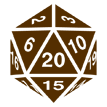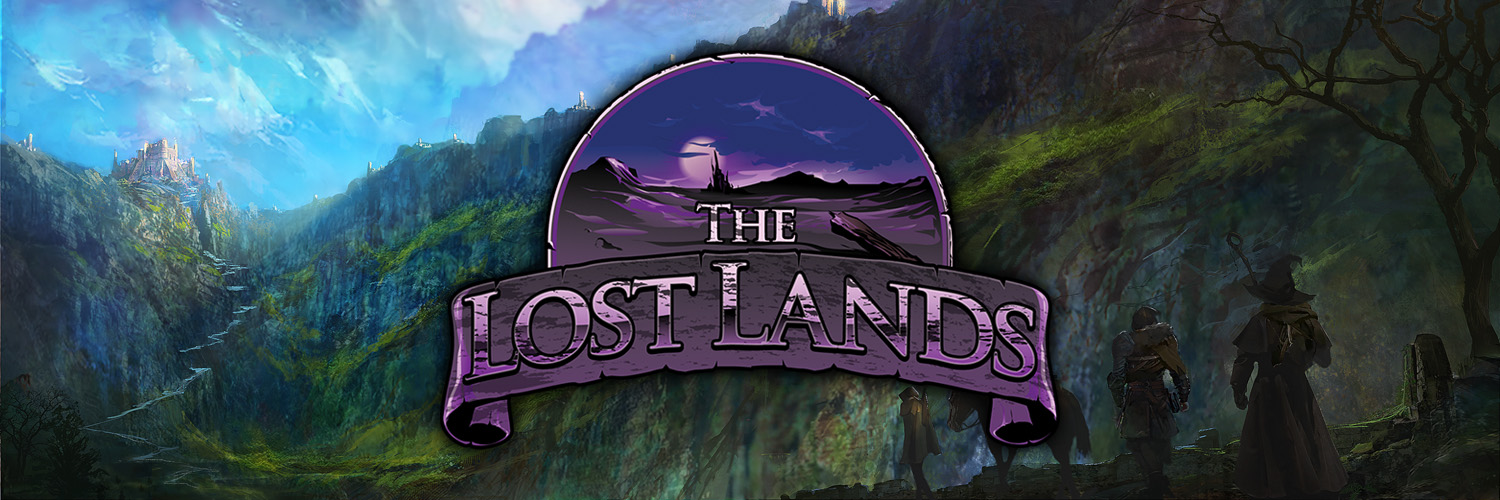Kingdom of Vast
Stretching from the fortress of Cailin Lee at the southern border past Seilo Ford to the north and wedged between the Blackrock Mountains to the east and the lands around the Worntooth Peaks and the Crescent Sea to the west, the Kingdom of Vast — sometimes also referred to as Kingdom of Vast — is a lightly-populated nation with good farmland and reasonably productive mines in the Worntooth Peaks and the western Blackrock Mountains. Now mainly known for its skilled artisans, the Kingdom of Vast and its people remain haunted by memories of a time just 400 years ago when the realm was overrun with the undead minions of the vampire-lord that had enslaved their lands.
History and People
Thousands of years ago, an ancient people known now to scholars as simply “the Vast” lived in these lands, and left behind intricate, abstract stone sculptures dotting the landscape that range from five to 15 feet in size, and which, despite the passing of ages, seem even today to be newly carved, untouched by time or attempts at destruction. Nothing of this forgotten culture remains other than these sculptures, no hint of how they were made, or what magic was used to preserve them for so long. Those living here now claim to be descendants of the Vast, though the truth of this remains uncertain.
In the days of the height of the power of the Kingdom of Foere, these lands were the Duchy of Kear, held in fealty to the overking. When the overking gathered the Second Great Crusade to retake the Sacred Table in Libynos from the Huun, a vampire-lord known as the Singed Man arose and took advantage of the absence of so many warriors taking part in the crusade to conquer Kear. He named himself its Infernal Tyrant in 2970 I.R. King Prudus II of Castorhage, who was traveling through Kear at the time, was captured by the vampire’s forces and slain. But until the crusaders returned, there was little that could be done to dislodge the Singed Man and his undead army. Finally, six years after the Sacred Table was retaken, the overking charged Battle-Duke Ormand of the Rampart with freeing Kear from the Singed Man. In 2977 I.R., the Battle-Duke’s forces met those of the vampire lord in battle. Taken by surprise by undead rising from the banks of the Meander, Ormand and his Foerdewaith army were crushed by the Infernal Tyrant at the Battle of Seilo Ford. Worse, the battle-duke himself was slain and turned into a vampire spawn, becoming the servant and general of the Singed Man. For more than 150 years, the vampire-lord and his servant terrorized the lands of Kear. The exhausted forces of Foerdewaith and Castorhage could do little but watch.
The reign of the Infernal Tyrant finally ended in 3128 I.R. when Sir Varral the Blessed slew the Singed Man and Ormand. Foere reclaimed the Duchy of Kear, and a nephew of the overking was appointed duke in Eber. However, Castorhage seized the port of Tarry as recompense for the loss of their king. Foere decided not to challenge this annexation, and Tarry remained a Castorhagi dependency ever since, leaving the Kingdom of Vast without a port on the Crescent Sea.
Fealty to Foere did not last long, however. The Foerdewaith Wars of Succession began in 3213 I.R., and Duke Oden of Kear declared independence from Courghais in 3224 I.R., renaming the duchy the Kingdom of Vast. By the next year, the Kingdom of the North Heath had also declared its independence, and both nations began their battle for freedom from Foere’s rule. Years of battles and skirmishes came to an end with the signing of an armistice between Foere, Vast, and North Heath in 3245 I.R., negotiated with the help of the City-State of Castorhage.
In an attempt to separate themselves further from Foere and Kear’s troubled past, the new royal family changed its surname to Vast and made a concerted effort to connect themselves and their people to the Vast of old. In truth, these efforts were made in large part to help the people forget the years of brutality under the Singed Man and the years of war with Foere and to usher in a new era of confidence and growth. Recently, these efforts seem to have had some success, and the population of the kingdom is finally starting to grow again, though it is nowhere near what it was before the reign of the Infernal Tyrant. But even now, the predations and destruction brought by the Singed Man are not discussed in Vast, at least not in public.
Religion
Eber is home to a temple and large university constructed by the monks of Yenomesh, while other temples throughout the realm are dedicated to various good or neutrally-aligned gods. Almost all of the active temples in Vast were constructed after the brutal reign of the Singed Man, during which most temples were desecrated and destroyed.
Trade and Commerce
The soils of the lands of Vast produce a variety of crops and other foodstuffs which, given the kingdom’s relatively low population, results in a good surplus for sale to other nations. While its mines in the Worntooths and Blackrocks may not be extensive, there are enough gem, iron, silver, and gold mines to support steady industries. Artisans and craftsmen in the cities take these raw materials and manufacture finished products that are traded or sent by caravan to the kingdom’s bordering nations. All such trade must pass through one its neighbors, however, as Vast lacks a port on the Crescent Sea ever since Castorhage annexed Tarry following the defeat of the Infernal Tyrant. While the king of the Vast would like to establish a new port, the only possible location on the coast north of the Worntooths would undoubtedly provoke the wrath of the Blighters. As a result, no moves toward settling such a port have yet been made.
Loyalties and Diplomacy
The Kingdom of Vast remains largely free of outside influence due to a combination of wise treaty choices, natural terrain, and the fact that their most hostile neighbor, the Principality of Olduvar, is for the most part badly managed and under constantly changing leadership. Periodic skirmishes occur on the border with Olduvar, but the defenses of Cailin Lee and Eber have been more than sufficient to protect the homeland. Right now, it is unlikely Olduvar will mount a major attack any time soon, but Vast remains prepared. The City-State of Castorhage pays close attention to the politics and policies of Vast because its main trade port, Tarry, is completely surrounded by lands claimed by the Kingdom of Vast. A close, friendly relationship benefits Castorhage, as it can then focus on its own internal problems without being concerned about the safety of Tarry.
King Jior Vast maintains healthy and positive trade and political agreements with Castorhage, the Iron Kingdom of Dorriden, the Barony of Baile and the Kingdom of the North Heath. It has cautious, but fair, trade agreements with the Kingdom of Foere. No trade or political agreements exist with the Principality of Olduvar, however, as the leadership of that country is not trusted. Most citizens of Vast consider the leaders of Olduvar to be insane and beyond understanding.
Government
While known to be egotistical and self-serving, King Jior Vast’s rule is marked by his ability to follow the good advice of his wise and experienced counselors and advisors. He maintains complete control over appointments to various positions of power throughout his kingdom but does his best to choose well-qualified individuals to govern his cities and villages. Military decisions are left predominantly to his top military counselors and generals. Minor government officials and offices are generally filled with nobles or wealthy merchants who support the crown.
The court system is complex partly due to old traditions and, in part, because it benefits the wealthier nobility and landowners. The courts are split into Low Court, Courtesy Court, High Court, and Lion’s Court. Low Courts handle criminal proceedings against anyone not considered to be of noble birth. Courtesy Courts handle financial or civil disputes of all types, but generally it costs money to file a grievance in the Courtesy Court, which usually reserves its use to the wealthy. Poor citizens who believe they have a case can appeal to certain legal representatives in the hopes that those barristers will pay the costs of filing a Courtesy Court case with the plans of recouping their costs and expenses in a final settlement, though this is extremely rare and when it does occur, there is often a different sponsor in the background trying to inconvenience a rival. High Courts decide criminal complaints against nobility while the Lion’s Court decides criminal complaints against the military and any accusations of treason against the crown. All decisions can be appealed to the king, who has been known to grant clemency to some nobility and certain friends.
Military
When Duke Oden of Kear declared independence from Foere, he benefited from the Foerdewaith custom of a well-ordered military. To this day, the soldiers of the Vast maintain strong traditions with intensive training and education, and are very well-organized. While there are some political disputes within the military ranks at times, generals have a great deal of power and influence throughout the kingdom, arising from their uniform competence as well as King Jior Vast’s preference to allow the generals complete latitude in running the military as they choose. Vast is land-locked and has no navy, but its infantry and mounted knights are said to be among the finest in the Lost Lands.
Major Threats
Vast is under constant threat of attack by the Principality of Olduvar and is highly vigilant in that direction. A threat not often recognized is that posed by Castorhage, which controls the only port on the Crescent Sea available to the Vasters. Fortunately, the Blighters tend to be highly focused on their own intrigues and show little interest in interfering with Vast. But were their commercial interests to diverge for some reason, the city-state could inflict a great deal of pain on the kingdom. Occasional incursions of humanoids and other creatures come from the Worntooths and the Blackrock Mountains from time to time, though neither has posed much of a threat to the central parts of the kingdom.
Wilderness and Adventure
Most of the kingdom is now relatively safe. The years of dominance by the Singed Man, followed by years of warfare, actually reduced the population of monstrous creatures in the region. Adventurers might seek out the ancient ruins rumored to be hiding the Worntooth Peaks knowing that these mountains are home to hill giants, orcs, dragons, and other creatures. Some areas south of Eber close to Olduvar are unpopulated and wild and act as a sort of buffer zone between the two nations. Ruins of ancient temples and villages dot the area, buildings and towns so thoroughly destroyed by the Singed Man that they were never rebuilt.
Region
Kingdom of Vast
Controlled Territories











Comments